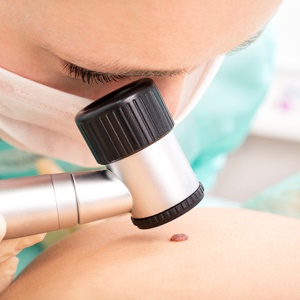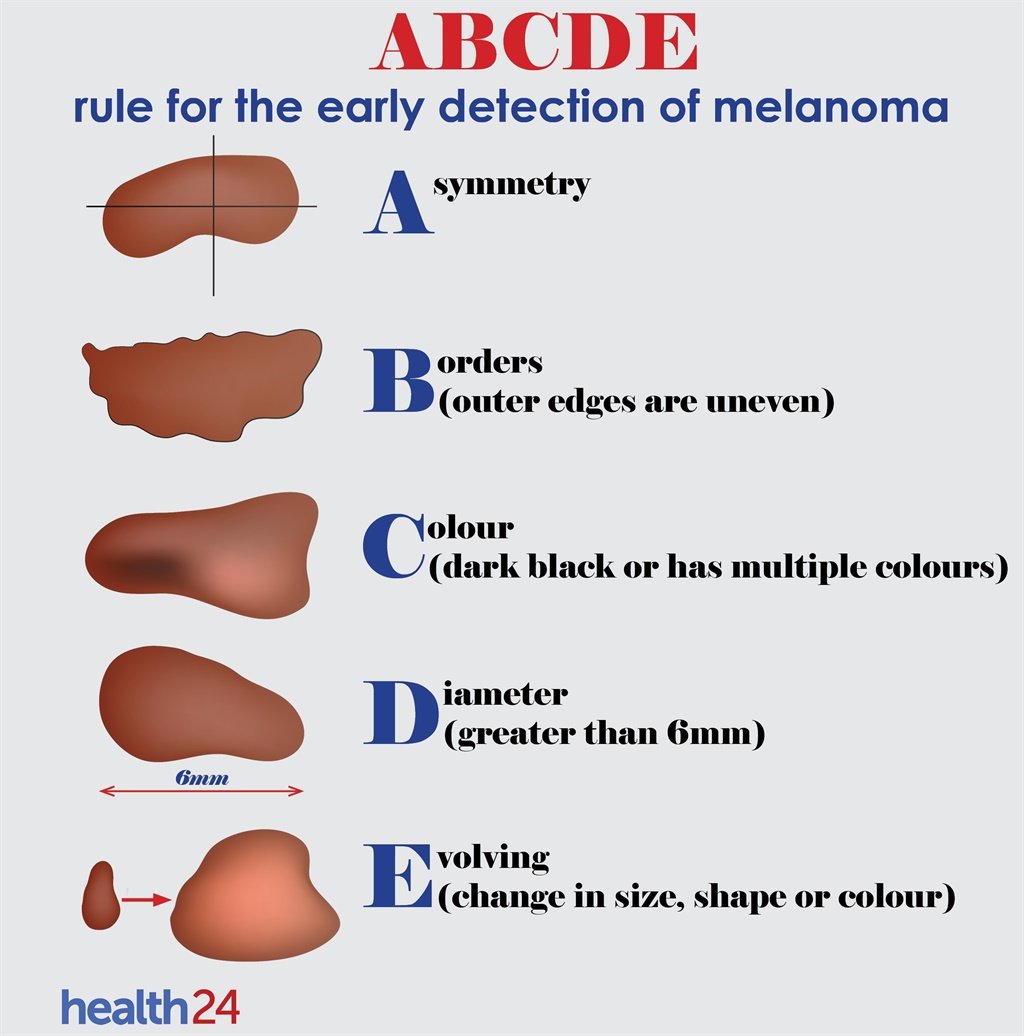
You’re getting dressed when suddenly you notice a mole you haven’t seen before. It looks a bit red and bumpy and you’re not sure if you should make an appointment to see your doctor.
No one wants to feel like a hypochondriac over a simple blemish but according to Health24’s CyberDoc Heidi van Deventer you should see your doctor as soon as you notice anything different on your skin.
“If you notice a strange-looking mole you haven’t seen before, have it examined by your doctor immediately,” she says. “Don’t ignore any signs that are you are even the slightest bit worried about.”
She adds: “You should also see your doctor when a mole that has been there for a long time changes shape or colour (any colour), becomes raised when it was previously flat, or starts to bleed or itch regularly.”

Rising risks
According to the World Health Organization, between two and three million non-melanoma skin cancers and 132 000 melanoma skin cancers occur globally each year.
A study in the BMC Health Services Research Journal says the annual cost of treating skin cancer in South Africa was estimated to be about R92.4 million in 2015. As the incident rate of skin cancer increases every year, so too will the cost of treatment.
While your GP can check your skin, it’s a good idea to find a dermatologist who can "map" your moles once a year. They keep track of your existing moles and treat any changes that may occur. Likewise, your dermatologist will also be able to pick up on any new spots.
Protect your skin even in winter
You need to protect your skin (especially your face and neck) all year round – even in winter when the sun doesn’t feel as harsh. It’s not a myth – you can get sunburnt on a cloudy day if your skin is not protected.
The danger of winter is that the summer sun, which is often your reminder to apply (and reapply) sunblock, is no longer there.
“Always use sunscreen – especially in summer, but even in winter,” advises Dr Van Deventer. When you’re outdoors during winter, you’re still getting UV exposure which puts you at risk of developing skin cancer.
When a mole evolves
“I do think that one should be more of a ‘hypochondriac’ when it comes to any mole that looks suspicious or suddenly appears out of nowhere. Have it looked at instead of just ignoring it,” says Dr Van Deventer.
Early detection is vital when it comes to the treatment of cancer.
There are three types of skin cancer:
1. Basal cell carcinoma: This is caused by exposure to the sun. It often shows up as a pink spot that bleeds.
2. Squamous cell carcinoma: If caught early, it’s fairly easy to cure and presents as a scaly sun spot.
3. Melanoma: About 5−10% of skin cancers are melanoma, which is a very aggressive form of cancer. It can quickly spread to tissue cells early on and can spread within weeks. Life expectancy depends on the stage of the melanoma.
When doctor becomes patient
Don't think that skin cancer will not happen to you. Dr Ellen Marmu, a New York City dermalogist and surgeon, was diagnosed with basal cell carcinoma twice. She wrote about her experience in a report published on American Academy of Dermatology website.
“As a dermatologist and surgeon, I have delivered the diagnosis of skin cancer to thousands of patients – so imagine my shock when I was diagnosed with basal cell carcinoma – not once but twice!”
In 2006 she had a hard, dark pimple on the side of her nose biopsied – it tested positive for basal cell carcinoma. Three years later, in 2009, another “pimple” popped up under her eye and although, at first, she thought it was just a blemish, it also tested positive for cancer.
“When I see patients, I’m able to relate when there’s a skin cancer diagnosis and be more of a comfort inside the operating room. I can talk patients through their fears and answer the question ‘Will it hurt?’ with real-world experience. I also give better advice: when I tell patients it’s important to wear sunscreen daily, to put on hats in the sun and to get yearly skin checks, it’s not a lecture; it’s sharing my experience.”
Have you had skin cancer? If you’d like to share your experience please email mandy.freeman@24.com.
Read more:




 Publications
Publications
 Partners
Partners











